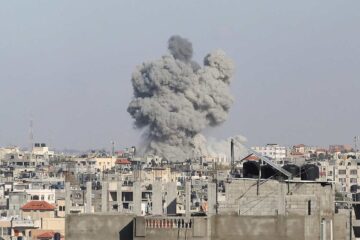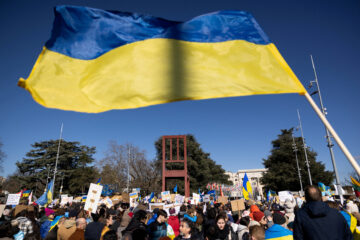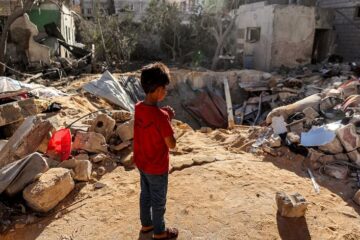Syrian chemical weapons transfer begins
The international chemical weapons watchdog says Syria has moved the first batch of toxic chemicals out of the country after transporting it from two sites to the port city of Latakia and onto a Danish vessel.
The head of the joint mission by the U.N. and the Organization for the Prohibition of Chemical Weapons (OPCW) said Tuesday that the ship – accompanied by naval escorts from Denmark, Norway and Syria – will remain at sea awaiting the arrival of additional chemical materials at the port.
Sigrid Kaag said in a statement that China and Russia are also providing maritime security.
Syria agreed to abandon its chemical weapons under a deal proposed by Russia and hammered out with the United States after a sarin gas attack last August that Western nations blamed on President Bashar al-Assad\’s forces. Damascus blames rebels for the attack.
A combination of war, weather and technical issues delayed a December 31 deadline for the removal of the most deadly toxins from Syria.
Also Tuesday, the Britain-based Syrian Observatory for Human Rights said rebels have killed 34 foreign fighters from al-Qaida-linked militias in northwestern Syria over the last three days.
The Observatory said most of the dead were fighters from the Islamic State in Iraq and the Levant ISIL, along with some from an allied group called Jund al-Aqsa.
The killings in the Jabal al-Zawiya region are part of a wider confrontation by an alliance of rebels against ISIL Islamists across rebel-held territories in northern Syria. That fighting is in its fifth day.
Meanwhile, the head of another al-Qaida-linked rebel group in Syria called for a cease-fire between opposition factions in an audio recording posted on Twitter Tuesday.
The leader of the powerful Nusra Front, who goes by the name Abu Mohammed al-Golani, laid much of the blame for the fighting on ISIL.
Both groups have roots in the global Islamist network and welcome foreign militants, but the Nusra Front has cooperated more with other rebel groups in Syria.
Source: VOA and agencies
[do_widget_area inner_adsbar]











